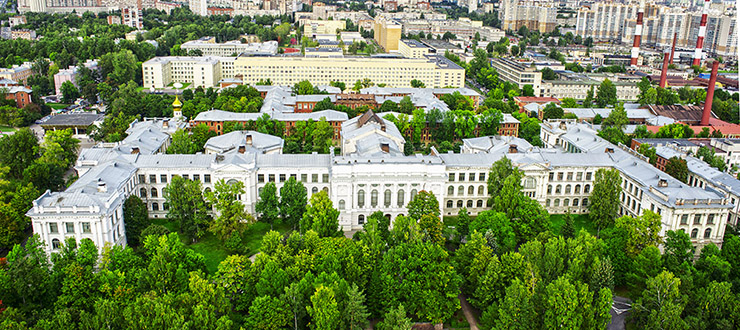SPbPU postgraduate student about his work with a leading metallurgical company in Italy
Supporting young SPbPU is an important sphere of activity of Polytechnic University, where the university cooperates with leading Russian and foreign companies and enterprises. One of the successful examples of such cooperation is the partnership between SPbPU and Arvedi (Italy). In 2017, Polytechnic University and the Italian company Arvedi (Italy). signed and agreement the launch of a joint program between SPbPU and Arvedi SpA “International Support Program for Young Scientists ARVEDI-SPbPU”. As part of this program, two postgraduate students of the Institute of Mechanical Engineering, Materials and Transport, Roman SMELYANSKY and Nikita ZHUKOV, under the guidance of their supervisors, Professor Nikolai KOLBASNIKOV and Associate Professor Anton NAUMOV, received funding from Arvedi for a period of 4 years to implement research projects as part of their dissertations.
We recently contacted one of the program participants, Roman SMELIANSKI, to find out how the cooperation with the company is going and how it influenced his scientific career. About this and not only, read in our interview.
SPbPU postgraduate Roman Smelyansky spoke about working with Arvedi, a leading metallurgical company in Italy
– Roman, what did your cooperation with Arvedi Company start with?
– I have been interested in international programs since my Master’s degree. My research supervisor told me about the joint project of SPbPU and the Italian metallurgical company Arvedi, and offered to participate. As part of the international program, we visited the Arvedi plant in Cremona, which is a modern production complex. It is the first in Europe and the second in the world mini-mill for flat steel production. We were impressed by the technology of continuous production of high quality steel strip ESP (Endless Strip Production), developed by the scientist and president of the company Mr. Giovanni ARVEDI. The implementation of this technology has allowed us to significantly increase the productivity of the plant, while maintaining the highest quality of the steel produced. Thus, the transition of steel from the molten state to the final product – strip – is only 180 meters and takes only 5 minutes!
– In your opinion, how different are foreign and Russian steel companies?
– Both Russian and foreign companies aim to increase productivity and improve the quality of manufactured products. However, our methods for achieving these goals are slightly different. I can’t help but notice that foreign companies in many respects are focused not only on improvement of production indicators but also on environmental protection. This is an essential issue to which all the world’s largest companies are beginning to pay attention today. For example, the unique ESP technology, implemented at the plant in Cremona, in addition to obtaining high-quality and cost-effective products, allows to significantly reduce energy and water consumption (50%) compared to traditional technologies. This results in a significant reduction of CO2 emissions into the atmosphere.
– What is your scientific work devoted to?
– My scientific work is devoted to optimization of friction stir welding (FSW) process by means of finite element modeling. FSW is a fairly new method of joining materials, which allows to obtain a homogeneous and fine-grained weld without melting the materials and the need for their preliminary preparation. Properly selected modes of technological process guarantee high mechanical properties of joints. In addition, I am an employee of the Polytechtest testing laboratory, which is engaged in mechanical testing of materials under various conditions. Researching the properties of materials and understanding the effect of structure on the final properties of products help me in my scientific work.
– Where and by what companies can apply your research results?
– Since now many manufacturing companies strive to increase the strength qualities of products while reducing their weight, it is safe to say that the results of my scientific work will be useful to many Russian and foreign industrial companies from the aircraft, automotive and shipbuilding industries. For example, at welding of responsible structures of a fuselage, car body parts, hulls of small-size vessels.
– Roman, what are your plans for the future?
– In the course of international cooperation, I was once again convinced that I was moving in the right direction. The scientific activity I am engaged in is innovative and is just beginning to develop in our country. The nearest plans for the future are to continue doing science and defend my candidate’s thesis. I would also like to thank our university for the opportunity to take part in an interesting international project. I believe that participation in such programs is very useful for undergraduate and graduate students, because it allows young scientists to improve their theoretical knowledge and see live how advanced companies are organized from the inside and gain valuable experience.

